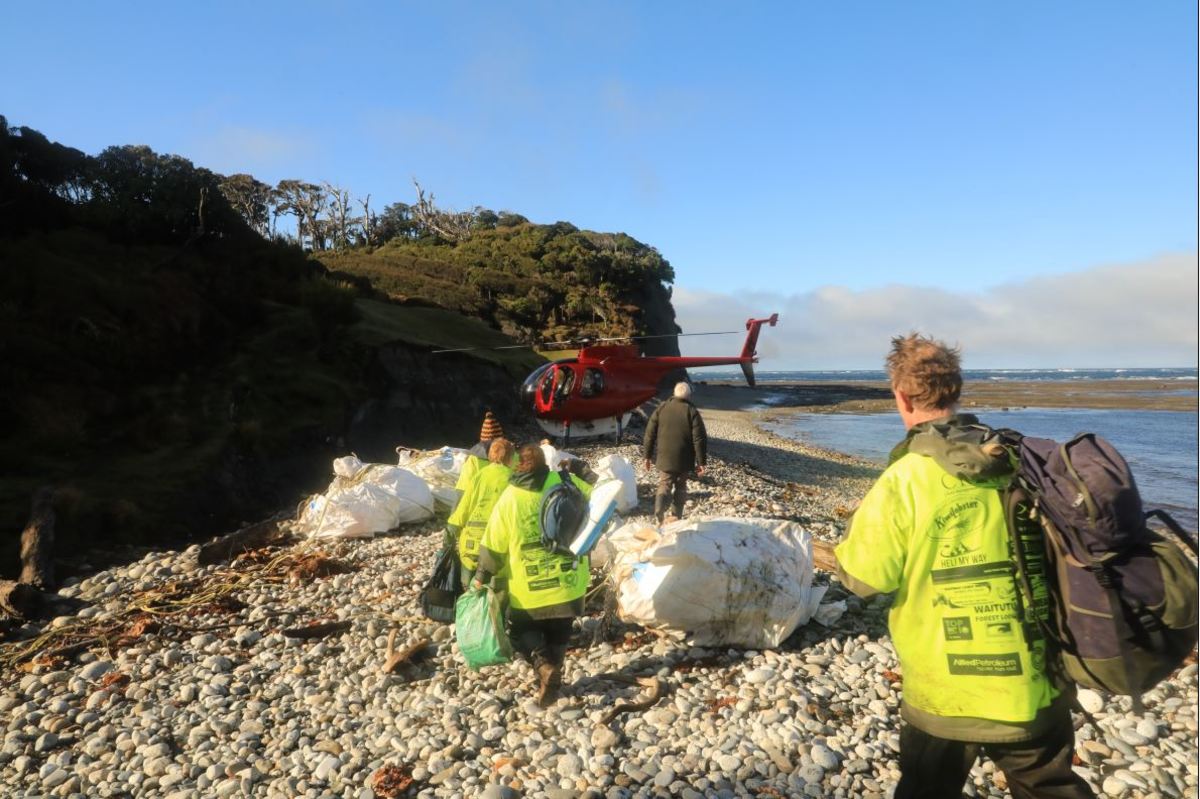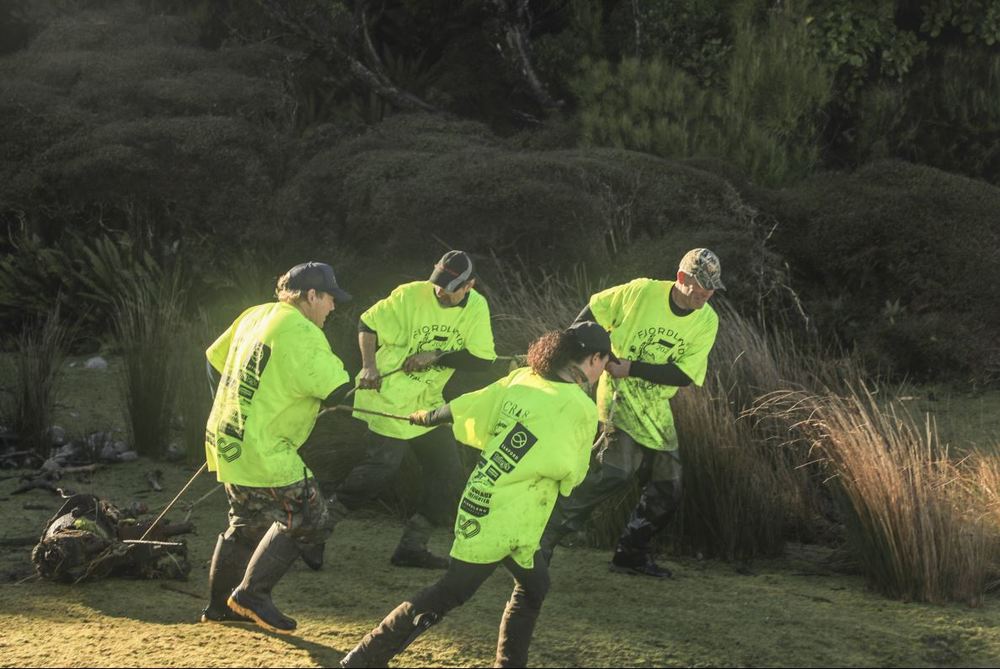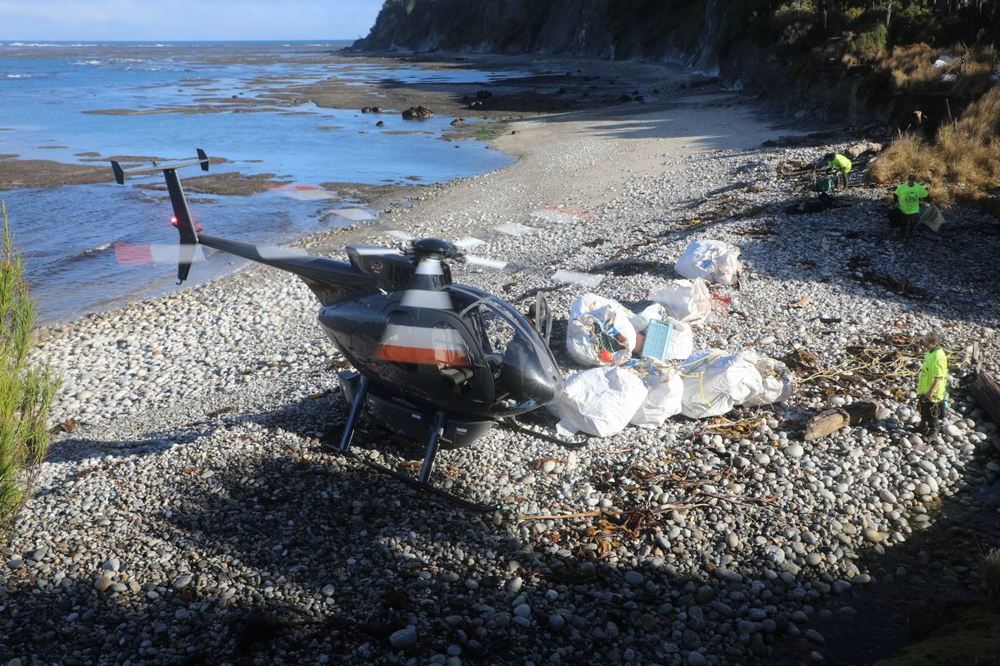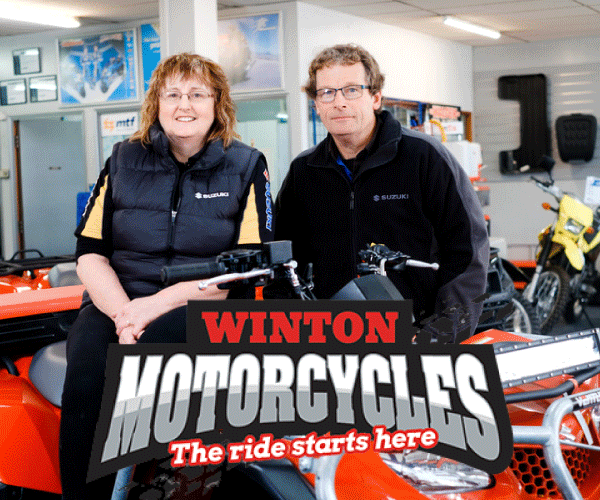Coastal clean up bags tonnes of rubbish
Paul Taylor
26 July 2021, 5:30 AM
 Hard graft: Volunteers scour the Fiordland coast for waste
Hard graft: Volunteers scour the Fiordland coast for wasteA $100,000 clean up of remote Fiordland coast has netted 68 cubic metres of rubbish.
Volunteers from the Southern Coastal Charitable Trust spent five days helicoptering on to inaccessible beaches at the south west tip of New Zealand.
The 20-strong team, ferried by two pilots from Fiordland Helicopters, worked their way 70km from Rakituma / Preservation Inlet east to Port Craig, picking up tonnes of rubbish along the way.
Trustee and coordinator Joyce Kolk QSM says most of what was collected was from the fishing industry.
Advertisement: Alex Reid Contracting
"The fishermen get a lot of blame for it, but it is lost gear," she says. "They don't want to lose it because it's their livelihood and costs a lot to replace.
"It makes me a bit cross when people blame them. We hardly ever pick up any bits of rope that have been cut, which we used to, so they're learning.
"And some of it has come from a long long way."

Volunteers drag some heavy waste towards the collection point
Along with ropes, nets, truck bumpers, wheels and other industrial waste, Kolk says domestic waste is becoming more evident.
"Lots of plastic bottles and stuff.
"Some of it has come from overseas but we have a lot of picnic spots next to rivers in Southland, and our council doesn't believe in putting rubbish bins there. The litter drifts out to sea and then comes back on to the coastline."
Over the years, the team has found waste carried by the ocean currents from South Africa, Australia, Chile and elsewhere, while a trawl net found on Stewart Island is believed to have come from a Norwegian fishing boat.
Advertisement: Aparima Restaurant & Bar
Kolk and her husband Johan Groters, who live at Clifton and operate the Wairaurahiri Jet, took part in a coastal clean up back in 2001 and then began organising them in 2012.
That involves a huge effort, attracting sponsors and donations, with much of the $100,000 costs donated through in-kind support of volunteer accommodation etc.
Much of the support and many of the volunteers come from the fishing industry itself.
The clean up was held from 16-20 July.
"They're quite hard days, at least six to seven hours on the beaches," Kolk says, "and isn't the cleanest of jobs, you do get quite messy.
"But at the end it's really is satisfying to see the beaches pristine as they should be."

Volunteers collected 68 bags of rubbish, each measuring one cubic metre
Kolk says she won't know how many tonnes of rubbish have been collected until it is all shipped back to Bluff, by the MV Stewart Island Freighter, where Michael Black and his team will sort out what can be recycled. Last time, the total collected was 11 tonnes.
The trust aims to clean the beaches at least every three years, and plans a trip to Stewart Island at the end of August.
"There will be a huge amount of rubbish there I can imagine. We haven't been for three years. The first time we went we got 20 tonnes, the second time 18 tonnes off 80km of beach.
"I'm expecting more this time."
Advertisement: Winton Motorcycles
ACCOMMODATION
AG | TRADES & SUPPLIES
FOOD | DRINK




